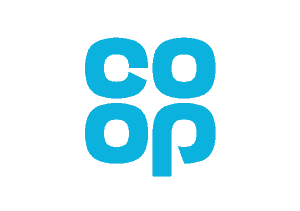
How Co-op is using Sedex as part of their ethical trade programme to increase supply chain transparency
Why did Co-op decide to join Sedex?
Ethical trade has always been a core part of Co-op’s operating model and vision, championing the best labour standards in their supply chains and acting responsibly towards the workers who make their products. Co-op has long recognised that through collaboration with other retailers and industry stakeholders, they are able to address common responsible sourcing challenges. Along with such other businesses, Co-op aimed to reduce audit fatigue among suppliers by having access to standardised audits that could be used and shared by multiple businesses, which is how Sedex and our SMETA audit was born.
16 years on from joining, Sedex continues to add value to Co-op, providing meaningful audit and supply chain data that Co-op uses to inform risk and mitigation strategies within their ethical trading programme. Sedex helps Co-op manage their supply chain data in one place, connecting a large, complex and growing supply chain,as they work towards increasing transparency.
Co-op’s Ethical Trade Manager has been involved in Sedex since it’s creation and has also served as an elected Member Director on the Sedex Board for six years to help shape the Sedex strategic focus and provide practical insights into common responsible sourcing challenges.
How is Co-op working with suppliers and partners to address key risks in their supply chain?
With growing challenges and increasingly complex supply chains, Co-op recognises that building strong supplier relations based on trust and transparency is key. Through these buyer-supplier relationships, Co-op hopes to achieve long-term and sustainable improvements to working conditions in their supply chain. They have built a robust ethical trading programme designed to manage risks and to empower their suppliers to implement sustainable change – putting workers’ interests first. Read more about their approach to ethical trade here.
The key behaviours that Co-op champions are:
- Proactivity – Independent anticipation and management of issues
- Ownership – Identify, map, assess risk and address issues
- Partnership – Working together to find long-term solutions
Sedex plays a key role in helping suppliers manage some of these behaviours. For example, Sedex’s Radar risk assessment tool empowers suppliers to proactively understand key trends and endemic issues that may affect their operational resilience or risk level and put in place action plans and activities to address these.
Co-op does not rely on audits alone to tackle labour rights issues. Their ‘Beyond Audit’ approach to managing issues includes:
- Working with suppliers to understand the root causes of issues and agreeing a course of action to resolve them fully, using the Sedex portal to track and manage progress
- Assessing and helping to improve suppliers’ capacity to manage risk, using their supplier performance framework based on Co-op behaviours to identify areas of improvement
- Providing supplier training and capacity building
- Collaborating with others to understand issues in the supply chain and identify solutions
As part of their programme, Co-op has identified eight key areas of risk in their supply chain where they focus their activities. These areas account for around 75% of workers in their supply chain, and prioritises 17 countries out of the 70 they source from in total. Collaboration is at the heart of their approach, so they are engaging with a wide range of stakeholders to work together in tackling common issues.
What benefits has Co-op seen from working with Sedex?
Sedex’s inception brought together industry experts to find a solution to common challenges, reducing duplication in efforts and increased collaboration. This has enabled leverage through the collective voice of retailers and suppliers to directly improve the lives of workers globally.
With such a large supply chain, Co-op’s team needed a solution that enabled them to monitor their entire supply chain’s ethical performance from one place, without being too resource intensive and capitalising efficiencies wherever possible.
Creating positive outcomes through collaboration
Using the Sedex platform, Co-op is able to access over 1,000 independent audits from their supply chain. The majority of these audits are shared with multiple Sedex members, meaning that the Co-op team is able to access this information to inform decision making without duplicating effort or cost. Using Sedex, they are able to collaboratively drive improvement actions. Over the last couple of years there has been over 5,000 improvement actions made across their supply chain covering a wide range of issues. Co-op are transparent on how they manage issues in their annual Modern Slavery Statement (see page 8).
Prioritising risk
As part of their programme, Co-op is also using Radar, Sedex’s risk assessment tool, to monitor risks by country and sector, and site-level risk based on suppliers’ self-assessments and third party audit data. By using information from Radar alongside their existing risk assessment processes, Co-op is able to better prioritise where to focus activities.
Enhancing supply chain transparency
Increasing transparency is one of Co-op’s key commitments as part of their Future of Food 2030 ambitions made to customers, members and stakeholders. Overall, they have over 650,000 workers across 2,480 supplier sites in their supply chain, which they have mapped on Sedex. 1,711 of these sites are beyond the first-tier as they have been working closely with their suppliers to gain more transparency in higher risk supply chains. As part of this commitment, they have disclosed details of their Co-op Food own-brand tier 1 supplier sites, along with disaggregated gender worker data on their website.
Internal engagement
Lastly, Sedex data is also helping Co-op’s ethical trade team to engage internal stakeholders. Using Sedex data, Co-op’s Ethical Trade team is able to produce monthly reports that measure performance against KPIs, facilitating conversations with Co-op’s buying and technical teams, so that stakeholders across the business can continue working collaboratively towards Co-op’s ethical trade goals.
To find out more about how Co-op are tackling labour rights issues in their global supply chains, click here.


